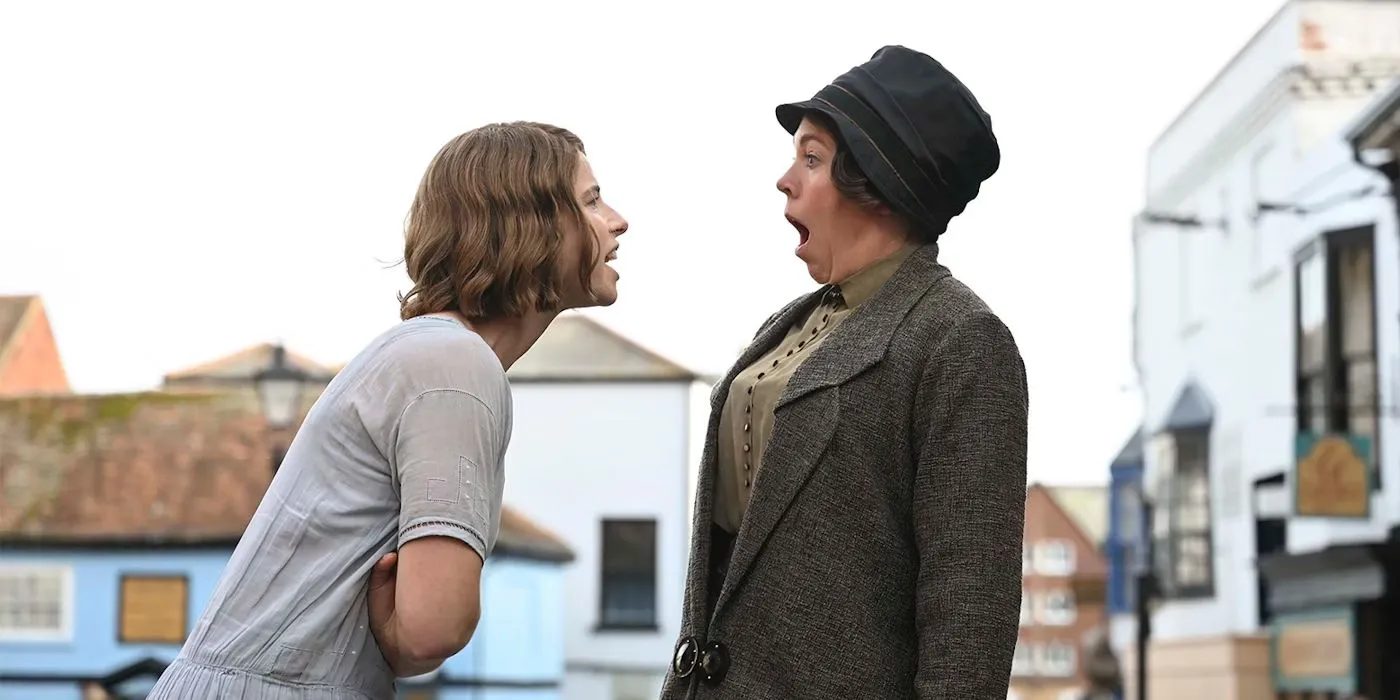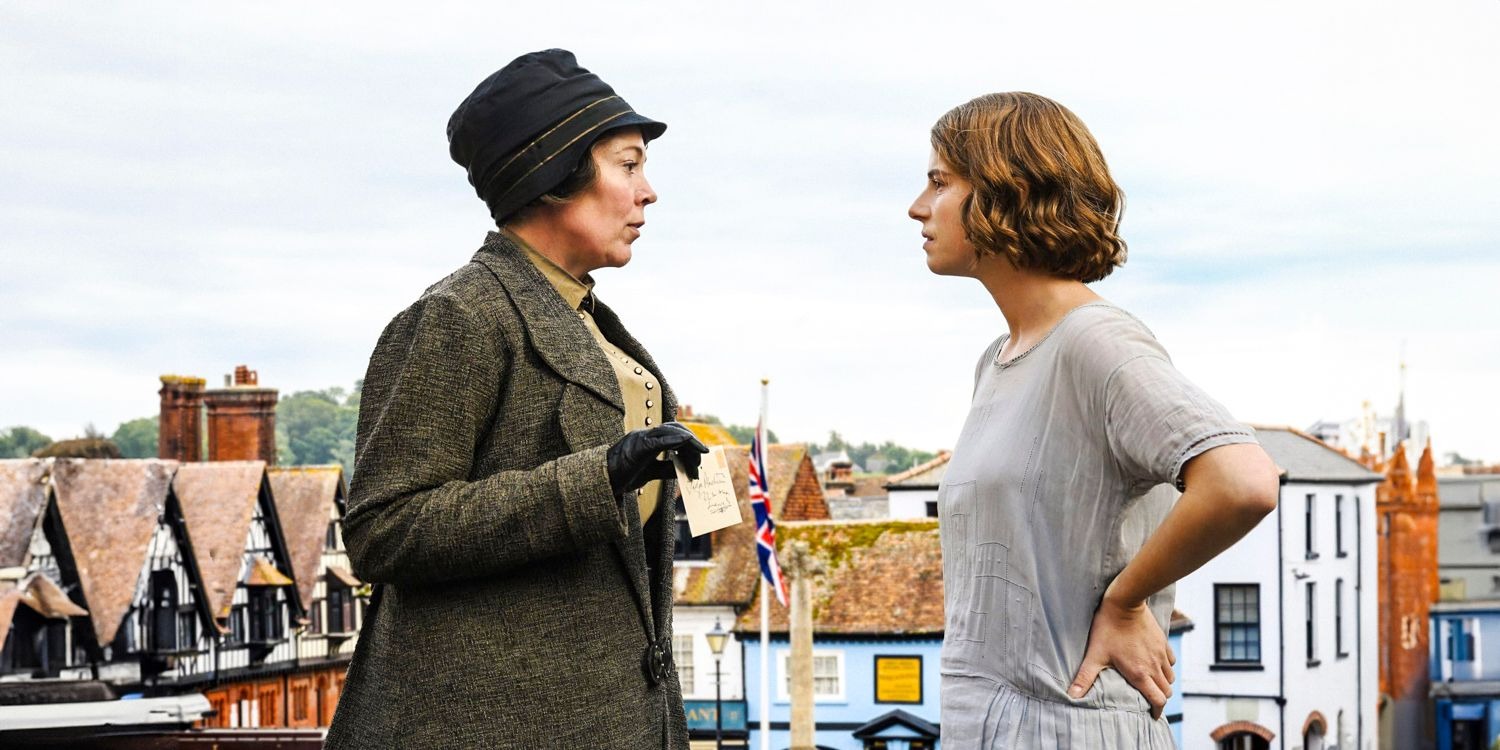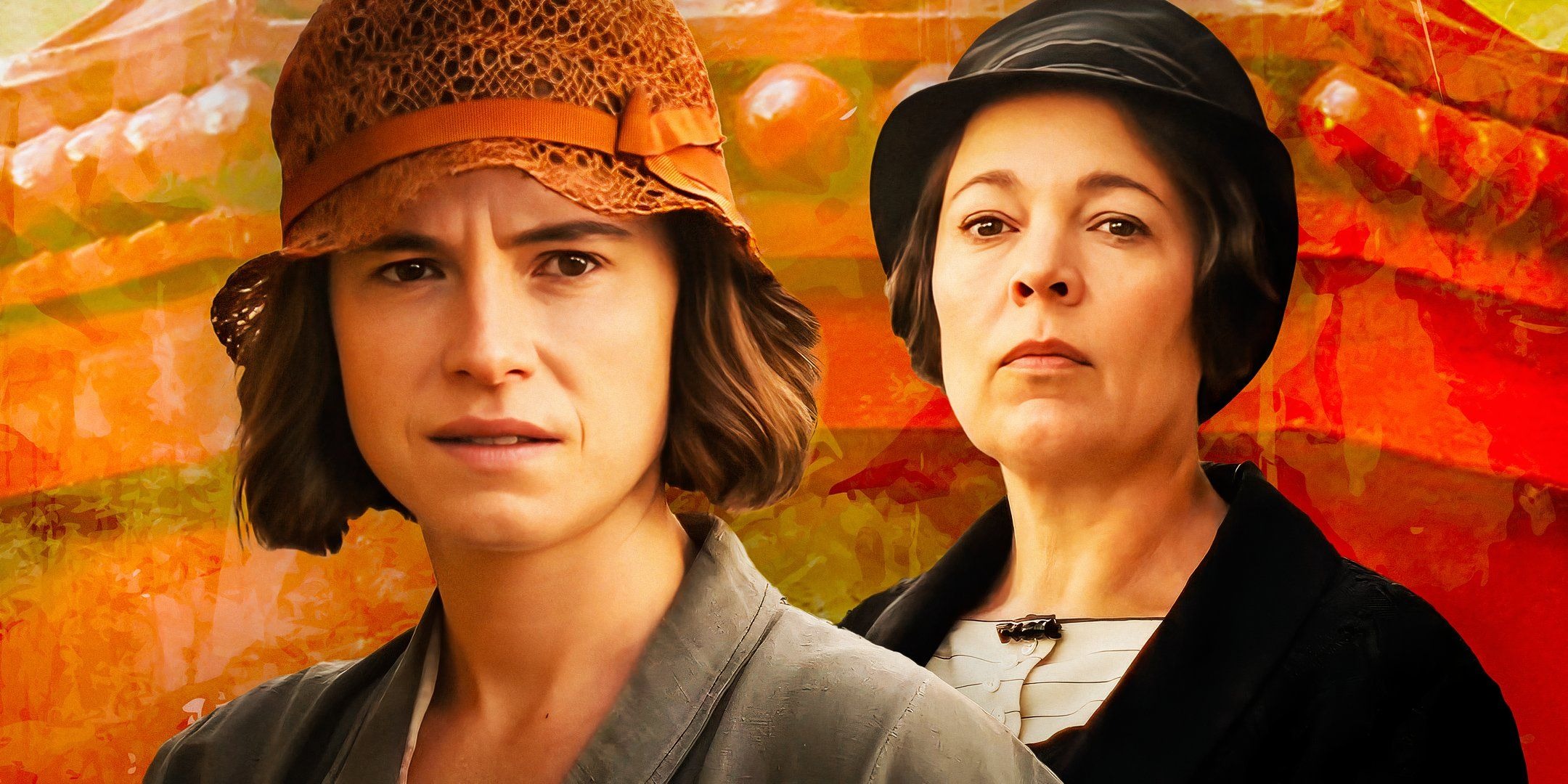Instead of quickly jumping into the matter of Edith’s arrest, Wicked Little Letters first lays bare what led her to that point. The film, which draws from actual events, features Olivia Colman as Edith — a woman who suddenly becomes the focus of her town when she receives crude anonymous letters.
Attention swiftly changes to Rose Gooding, portrayed by Jessie Buckley, mainly because she’s outspoken and unmarried, making her an easy suspect. But with time, it becomes evident that Edith was behind those letters and had been sending them to herself all along.

While the police remain fixed on Rose as the prime suspect, Moss is the only one bold enough to challenge that assumption and search deeper. Her determination later uncovers Edith’s involvement, while also dragging her troubling relationship with her father, Edward, into public view.
Why Edith Feels Good About Defying Edward In Wicked Little Letters’ Ending
Edith Feels Liberated Despite Being Sent To Prison. The tension between Edith and her father, Edward, remains until the film’s final scenes. Though she’s aware that he is the major barrier to her freedom, she finds it hard to cut ties with him because he manipulates her emotions to keep her dependent.
As the events progress, she begins to realize that Edward’s grip on her life caused her previous relationship to collapse. Though the situation ends with her being taken to prison, Edith sees it as a release, since staying with her father had become unbearable.
She had been living under rules that wore her out mentally and stripped her of any sense of control, and the moment she was arrested for writing the letters became her final breaking point. Ironically, prison appears more freeing than her father’s household.
Just before she is driven away in the prison van, Edith turns to Edward and tells him she’s not coming back. When he makes one last effort to get into her head, she responds with painful truths she had never voiced.
Though she’s shocked by her courage, she starts laughing as she’s taken away, and Rose shares a quiet joy in seeing Edith finally speak up. This closing moment fits the wider theme of the film, which reflects on the struggles women faced and how the suffragette movement was gradually taking root in Britain.
Beyond Edith, the movie also highlights how other women like Moss had to deal with men who either downplayed their input or tried to claim their work. By the time the story ends, both Edith and Moss succeed in taking control of their own stories.
Why Edith Writes The Letters In Wicked Little Letters
The Letters Reflected Edith’s Internalized Anger & Hate. Before the story reaches its final moments, Edith opens up to Rose and admits that she couldn’t stop once she began writing the letters, and she expresses regret for wrongly accusing her.
Although she doesn’t give a direct explanation for why she targeted herself, the story suggests that deep emotional wounds were driving her actions. Her father had blocked her chances at happiness time and time again, but she found herself unable to voice how she truly felt.
Instead of confronting the pain directly, she channeled it into the vulgar messages she sent herself, using them as an outlet for her rage. There was also an unspoken grudge she held against Rose. While Edith spent her time trying to live up to societal expectations, Rose seemed unbothered by public opinion and lived freely.
That difference made Edith feel inadequate, and instead of dealing with that feeling, she blamed Rose. As the film approaches its final scenes, Edith owns up to the jealousy and offers a sincere apology, recognizing that she had no right to make Rose the target of her frustrations.
That moment of truth allows her to draw closer to the idea of living more openly, like Rose, instead of letting her emotions turn bitter. Her confession paves the way for their friendship to heal.
Moss’ Plan To Catch Edith Red-Handed Explained
Moss Stays One Step Ahead Of Edith To Expose Her. The turning point comes after Edith’s mother, Victoria, dies following the shock of reading one of the disturbing letters. Moss, when asking Edith to sign the death certificate, notices how she forms the letter “G” — and it looks just like the handwriting in the anonymous letters.
This observation makes Moss suspicious, but her superior, Chief Constable Spedding, ignores her warning and even suspends her for pushing the matter too far. As the plot moves towards its resolution, Moss joins forces with Ann to prove Edith’s guilt.
They secretly apply invisible ink to the stamps that Edith purchases. Once she sends out another letter, Moss is already watching and quickly intercepts it. A chemical treatment then brings out the invisible ink, confirming that the stamps match those sold to Edith.
This physical evidence links Edith directly to the letter campaign and secures her arrest.
The Real Reason Behind Rose & Edith’s Fallout Explained
Edward Was The Reason Why Edith & Rose Stopped Being Friends. Edith and Rose had a close bond before things took a turn. Their friendship began to crumble after Rose got into a scuffle at Edward’s birthday gathering, which led someone to call child services on her.

Rose, thinking Edith made the report, cut ties with her. But the truth later comes out in the film — it was Edward who contacted child services, unhappy with Rose’s influence on Edith. Edward had always sought to control every part of Edith’s life and viewed Rose as a dangerous influence.
He feared that if Edith kept spending time with someone as bold and self-assured as Rose, she might begin questioning his authority. Eventually, Edith sees that her real obstacle is her father, not Rose. He had always been the one stopping her from living freely.
How Wicked Little Letters’ Ending Compares To The Real Life Events
The Movie Changes Certain Details Surrounding The Real Events. Just before the credits roll, the movie shares that Edith Swan was sentenced to a year of hard labor. It also confirms that Rose was never charged with any offense and that Moss now has a plaque honoring her in Littlehampton.
These facts are based on real accounts, but the film makes a few changes, especially when explaining Edith’s motivation for writing the letters. Den of Geek points out that Edith’s father didn’t play any part in her dispute with Rose.
In real life, Edith went as far as taking legal action against Rose even though she was the one writing the letters. Many of the notes were signed with initials like “R,” “R.G.,” or “with Mrs. Gooding’s compliments,” clearly showing Edith meant to pin the blame on Rose.
Although the film alters these details for dramatic effect and a more hopeful tone, those choices reflect creative storytelling rather than strict factual accuracy.



